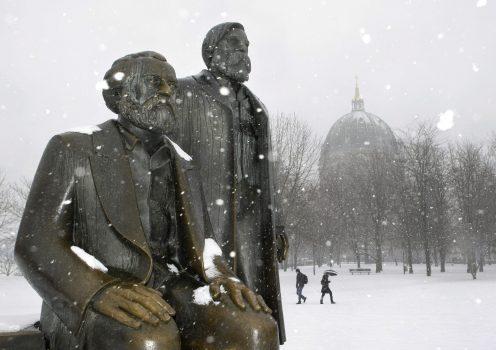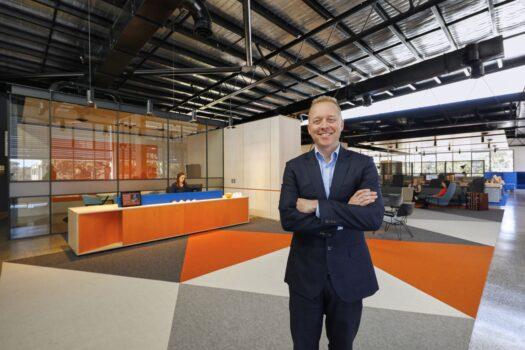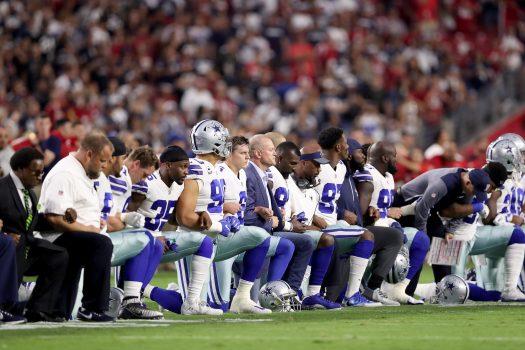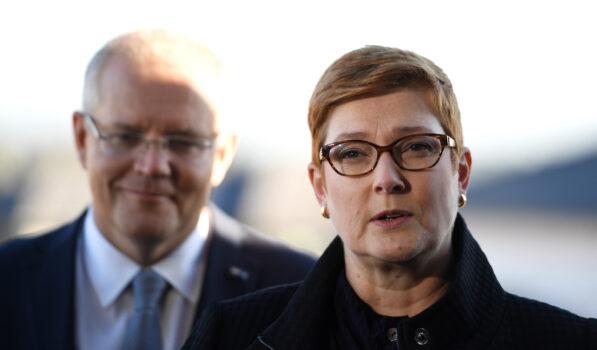One Australian CEO is defying the trend of woke corporate policies which he says promote “division and exclusion” in the workplace. He wants nothing to do with the movement, which has its origin in the critical race theory and identity politics of cultural Marxism.
Sam Kennard is the chief executive of Kennards Storage, one of Australia’s largest self-storage companies.
In addition to being concerned about the push for woke corporate policies, he is actively working with his suppliers to diversify his supply chains away from China, because of the ruling Communist Party’s (CCP) oppression of Chinese people—specifically noting the treatment of Uyghurs and the loss of democratic freedom in Hong Kong.
On woke corporate policies, Kennard told The Epoch Times the trend stems from Marxist critical race theories and is being used to attack capitalism and Western civilisation.
“They unify a particular disenfranchised group, or create the perception of disenfranchisement, and ultimately attack capitalism and Western civilisation, and try and tear it down,” he said.
“They’ve tried other ways to attack capitalism in the past and this is another door they want to come through,” he said.
Theories that descend from Marxism revolve around the idea that society is segmented into different classes, and the classes are portrayed as engaging in a never-ending power struggle. Ultimately, Marxism succeeds when one class triumphs over the other.

In the modern workplace, this idea plays out under the guise of “equality” and attempts to address perceptions of imbalance. This concerns Kennard, who thinks it could lead to unfair hiring practices not based on merit, but rather on who is perceived to be more “disenfranchised.”
“If you take this forward, there'll be regulations that favour particular interest groups, so that one particular identity is diminished and another one rises,” Kennard said.
Kennards Storage has over 90 locations across the country and operates seven days. Like many companies of a similar scale, it faces calls to act on progressive issues, such as workplace equality.
“We ignore it. Frankly, we completely ignore someone’s background. We just take the best candidate at the time for the job, irrespective of their race, their religion, their sex, or their age,” Kennard said, noting that Kennards employs people from across the spectrum of age and race.
The main demographic you may not find working at a Kennards Storage facility are mums and dads with young kids, who find it difficult to work seven days.

The Workplace Gender Equality Agency (WGEA) was set up by former Prime Minister Julia Gillard in 2012 as a progressive cause that corporations must balance on top of keeping their companies profitable. Companies like Kennards Storage are meant to submit a comprehensive report to WGEA every year.
“But we don’t do that,” the company’s CEO said.
“Every company with more than 100 employees is supposed to submit these reports every year,“ Kennard added. ”You’re supposed to identify how many women you’ve got, how many men you’ve got, how many promotions you gave to each, what the pay levels are for each, etc.”
Requirements on corporations to align with progressive agendas and ideals are “wasted energy” and is having a negative impact on Australian businesses and careers, according to Kennard.
“I have a friend who’s completely lost interest in his career (in corporate real estate) because of how he has to placate to various groups,” he said. “And I’ve met others who have complete disdain for it, but just play the game.”
“Diversity inclusion is actually completely flipped over to be more about division and exclusion. You are defining people more by their identity, gender, sexuality, race, or religion, than you are about what their character is.”
Corporate woke culture last year saw ANZ, one of the “Big Four” banks, plan to end investment in thermal mines and power stations by 2030 in response to calls supporting a “zero emissions” approach as the best way to address climate change.
The sporting world has also seen sporting bodies across Australia and the United States grapple with whether their players should bend the knee in solidarity with the Black Lives Matter movement—whose founders are trained Marxists.

Boycotting Chinese Supply Chains
In December last year, Kennard made headlines when he called for Australian businesses to drop suppliers from China.The trade strikes began soon after Foreign Minister Marise Payne called for an inquiry into the origins of COVID-19 in April, which sparked a sharp rebuke from Chinese Ambassador Cheng Jingye.

Kennard himself pledged to wean his company off Chinese-sourced materials such as plastics, display screens, and padlocks. This move resulted in a surge of inquiries from suppliers spruiking non-Chinese made products.
When asked about the current progress of his pledge, Kennard said, “Nothing has changed to soften my view on how unfriendly China is toward Australia.”
He has put his incumbent suppliers on notice to source products from other countries and has written to staff in the company’s magazine on human rights issues and the company’s stance on the CCP.
“We all struggled with that internally in our family about how the Chinese treat its own citizens. It’s very concerning. We feel quite helpless about what to do about those problems including the Uyghurs, the surveillance, the freedoms the Chinese people do not enjoy, and Hong Kong,” he wrote in the magazine.
He told his employees the company’s leadership team asked themselves whether it was ethical to continue to trade with such a “hostile supplier.” So they decided to “look around.”
When asked what would make him change his mind about investing in China again, he said, “Frankly, I’m not sure China can be easily trusted. They do say one thing and do another. They’re playing a very hostile game towards Australia, and they just continue with the rhetoric against Australia.”
Indeed Beijing’s rhetoric has not abated. CCP media mouthpiece The Global Times has run consistent editorials attacking Australia over the last few weeks.
Just last week, Beijing’s Deputy Head of Mission Wang Xining referred to Australians who criticise Beijing as “scumbags” in a speech to the Australia-China Business Council during a Lunar New Year event.
Kennard did hint that he may again invest in China one day, but only after the CCP backs out of Hong Kong, frees the Uyghurs, preserves civil liberties, and respects democratic norms.





